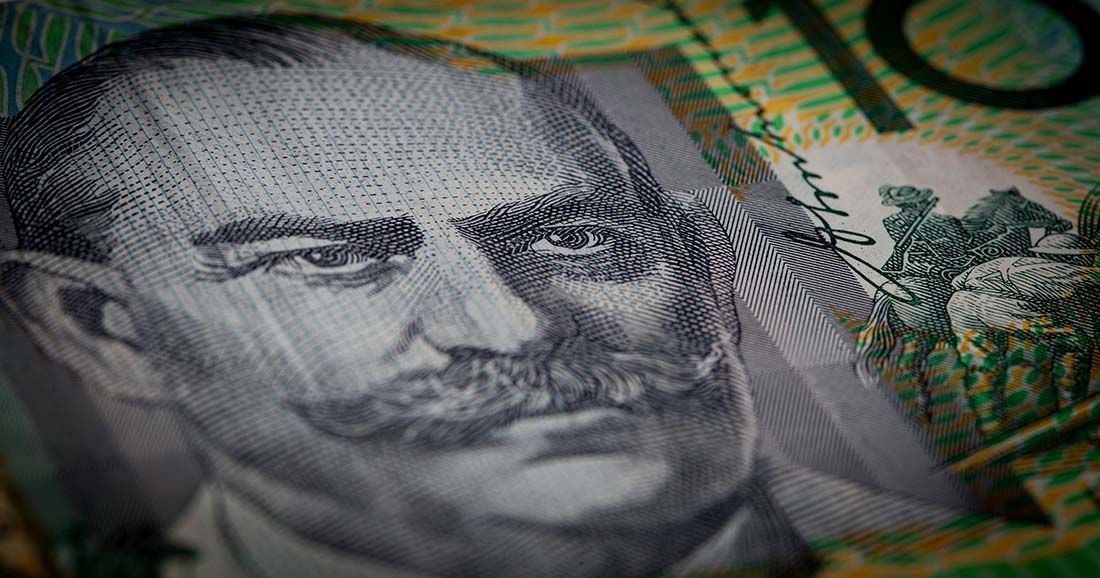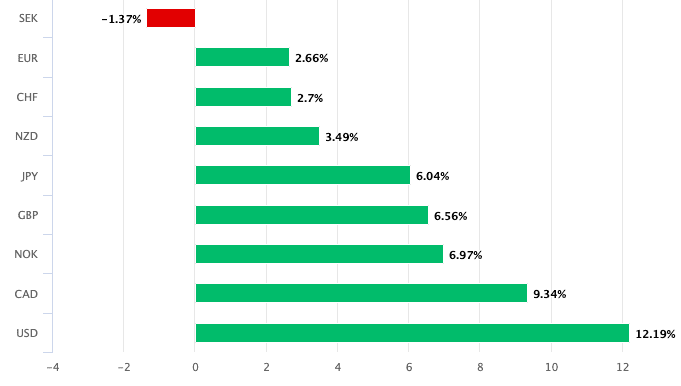End of Australian Dollar Exceptionalism? Analyst Views on the Aussie Dollar's Outlook
- AUD outperformed in 2020
- Strong links to China to keep AUD supported
- But exceptionalism to be questioned in 2021

Image © Adobe Stock
- GBP/AUD spot at publication: 1.7573
- Bank transfer rates (indicative guide): 1.6960-1.7086
- Transfer specialist rates (indicative guide): 1.7160-1.7455
- Find out about specialist rates available to you, here
The Australian Dollar's outperformance in 2020 puts it on a strong footing at the start of the new year, but some analysts say investors must be aware that the exceptional performance of past months might not be repeated in 2021.
"We forecast relatively modest AUD strength for 2021," says Adarsh Sinha, analyst at Bank of America Merrill Lynch in Hong Kong.
The Aussie was a top performing currency in 2020, pushing higher in value courtesy of Australia's relatively light experience of covid-19 and its strong attachment to the Chinese economy, which put in a particularly strong performance in the second-half of the year.
But coming months could well see the Aussie's outperformance fade, according to Sinha and Paul Robson at Natwest Markets.
"The antipodeans have already been the strongest performing currencies in the G10 since the Fed slashed rates in March, and may suffer on a relative basis should the catch-up narrative play out," says says Paul Robson, Head of G10 FX Strategy, EMEA, at Natwest Markets.
From a strategic perspective, Natwest Markets favour those commodity currencies that are exposed to oil exports, namely the Canadian Dollar and Norwegian Krone.

Above: The Aussie Dollar was the second-best performing major currency of the past year.
While the Australian Dollar should retain support from a recovery in global growth, Sinha says there are three reasons for investors to adopt a more conservative stance on the currency:
1) The difference between interest rates in the U.S. and Australia matter, according to Sinha. The U.S. cut interest rates faster than was the case in Australia in 2020, a development that proved to be a boost for the Aussie Dollar. This relative advantage could however reverse in 2021 as the Fed is unlikely to ease policy further.
Indeed, there has been much chatter in financial circles over recent days of the Fed actually withdrawing some stimulus support, potentially later in 2021. This would reverse the dynamic that has favoured the Aussie Dollar of late and explains why AUD/USD has topped out at 0.78 in the past few days.
2) China. The boost in Chinese growth in 2020 - at a time the world's main developed economies were fighting recession - was an important source of support for the Australian Dollar in 2020.
"Our baseline is this is sustained through 2021 but at a sequentially slower pace. With China’s domestic activity virtually back to pre-pandemic levels, no monetary easing expected and some modest tightening of fiscal policy, this will only provide a modest further impulse to AUD in our view," says Sinha.
{wbamp-hide start} {wbamp-hide end}{wbamp-show start}{wbamp-show end}
3) Stocks and 'risk on' assets could be peaking, for now. Bank of America Merrill Lynch economists are tell clients they are wary of a potential top in 'risk assets' (stocks, commodities) in the first quarter of 2021.
The bank's global investment strategist flags indicators such as cash levels and global breadth that are closer to triggering a sell signal.
"The broad consensus that 2021 will be a year of normalisation seems likely to face a few speed bumps along the way. To the extent that AUD is among the more liquid proxies for a global recovery, any risk sell-off would matter," says Sinha.
The Australian Dollar displays a high beta - i.e. it has a strong positive correlation with stocks, more specifically the S&P 500 which is the preferred benchmark for global stocks.
Should the stock market rally continue to be fuelled by confident investors seeking out high returns, then the Aussie could well benefit. But should the music stop and equities lose ground, the Aussie could lose value.
But even if 2021 does not prove to be a year of outperformance, this fundamental source of support should ultimately protect the currency from any major setbacks.
"AUD and NZD may continue to reap economic benefits from their strong links to Asia," says Robson.
The Australian economy retains a solid fundamental underpinning in the form of its exposure to the growth engines of Asia, particularly China which continues to show a strong appetite for Australia's key exports, namely iron ore.
"We think the fundamental story in Australia remains solid, and the AUD continues to look attractive on our long-term valuations metrics," adds Robson.




